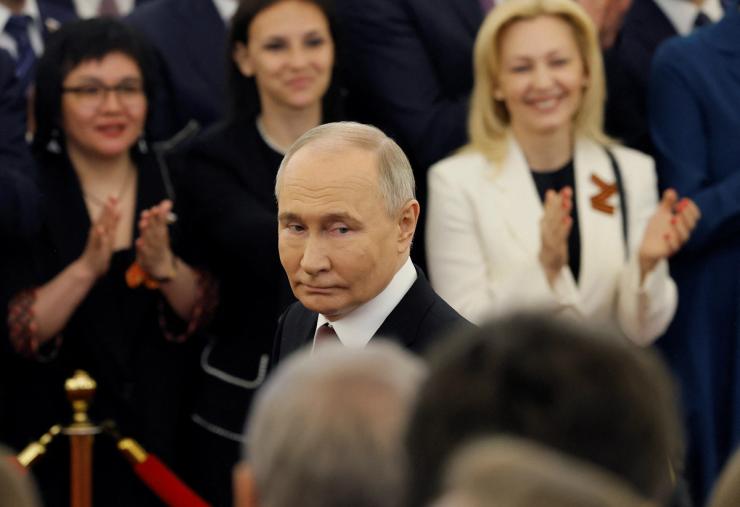The News
Vladimir Putin was sworn-in for a fifth term as Russia’s president on Tuesday, further solidifying his power over the country.
Moscow said it had invited all foreign ambassadors to the inauguration, but the US, UK, and EU member states boycotted the event.
Putin has served as either president or prime minister of Russia since 1999, and won a landslide victory at the country’s recent election following voting that was rigged in his favor. Major opposition candidates were barred from running.
SIGNALS
Kremlin has redesigned Russia’s image
Under Putin, Russia has transformed into a nation “that views the West as its mortal enemy,” Robyn Dixon, Moscow bureau chief at The Washington Post, wrote. The Kremlin has chipped away at Russian society, turning the country onto an ultraconservative path that prioritizes Russian Orthodox values. Governance has slid towards fascism — and the result is that Moscow is “trying to create some new form of ideology for the masses,” Mikhail Zygar, a Russian journalist and writer, told the Post. “It’s not a war with Ukraine. It’s a war with America, a war with the West or with Satan, with all those forces of moral decay.”
Possible reshuffle of top brass could give insight into Putin’s thinking
Following an inauguration, Russian leaders typically reshuffle their cabinet. This could offer a rare glimpse into how Putin plans to govern, Politico noted. The Kremlin’s “old guard” — trusted confidants of Putin’s who have long held onto their posts — are all nearing or in their 70s, meaning that a new generation of Russian elites could soon take over. But “their replacements are not ready,” Nikolai Petrov, a consulting fellow at Chatham House, told the outlet. “The system is facing a serious problem, and we’ll see to what extent it is able to solve it or whether it’ll just stall for time.”
Russian public has largely stopped opposing war in Ukraine
In contrast to the shock and anger many Russians felt after Moscow’s full-scale invasion of Ukraine in 2022, much of the public has now become accustomed to the war. That runs counter to expectations that sanctions and international outcry would mobilize Russians against the Kremlin, Bloomberg reported. Thousands of Russians fled the country after the war began, and those who remained have accepted the new face of the nation, one analyst said. “When there is no way out of a situation with dignity, there is no way to leave, and there is a need to earn money and raise children, then it’s easier to accept a new reality than to resist it endlessly,” Anna Kuleshova, a sociologist at the Social Foresight Group, told the outlet.



